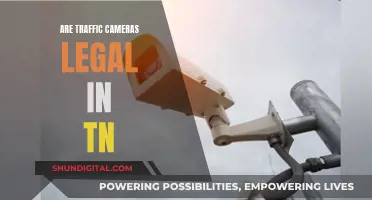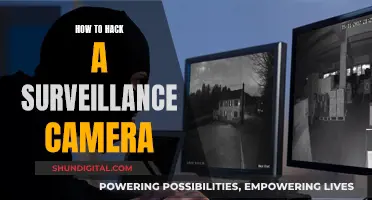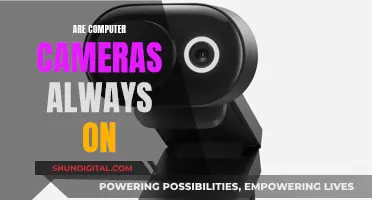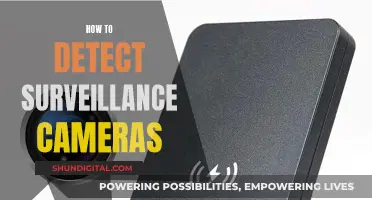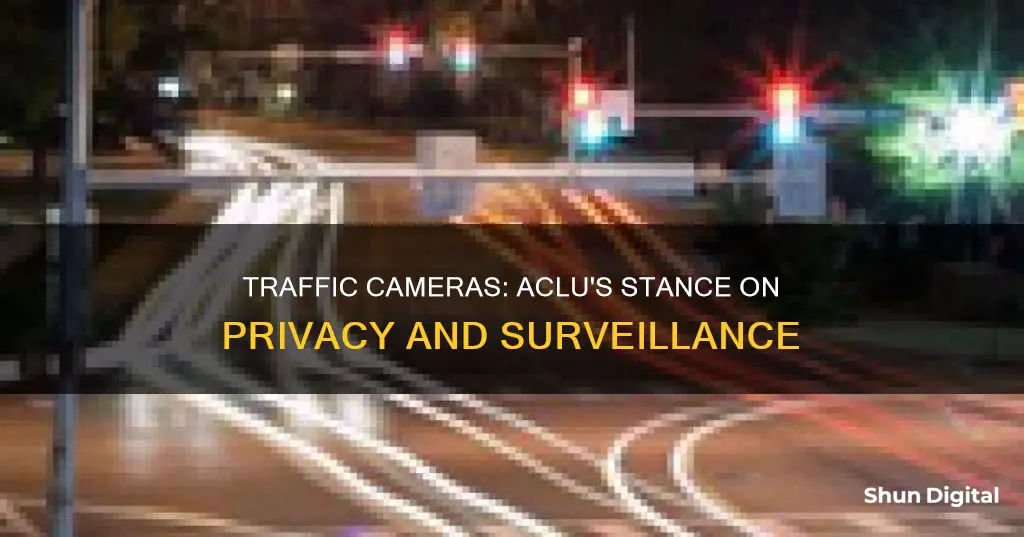
The American Civil Liberties Union (ACLU) has expressed concerns about the use of traffic cameras, particularly those that capture vehicles running red lights or stop signs. While some argue that these cameras improve traffic safety, the ACLU has identified several issues related to due process, fairness, and privacy. One concern is that the owner of the vehicle is ticketed, regardless of who was driving, shifting the burden of proof onto the owner to prove their innocence. This raises questions about the right to due process and the principle of innocent until proven guilty. Additionally, the involvement of private companies in operating these cameras and collecting revenue from fines creates conflicts of interest and undermines public trust in traffic safety initiatives. The ACLU also worries about the potential for mission creep, where data collected by traffic cameras is used for purposes beyond traffic enforcement, infringing on individuals' privacy. While the ACLU does not oppose all surveillance cameras, particularly in high-profile public places vulnerable to terrorism, they caution against the widespread use of traffic cameras, citing concerns about fairness, privacy, and the potential for government overreach.
| Characteristics | Values |
|---|---|
| ACLU's Stance on Traffic Cameras | The ACLU is against the use of traffic cameras due to concerns about due process, fairness, privacy, and safety. |
| Due Process Concerns | Traffic cameras violate the right to due process as the registered owner is held liable, even if they were not driving. The burden of proof falls on the owner to prove their innocence, which contradicts the principle of being innocent until proven guilty. |
| Fairness Concerns | The presumption that the owner of the car is the driver is often wrong, and the owner is ticketed without the opportunity to confront the accuser or explain extenuating circumstances. |
| Privacy Concerns | The data collected by traffic cameras may be used for purposes beyond traffic enforcement, such as tracking individual cars and invading the privacy of car owners. |
| Safety Concerns | The safety data is conflicting. While traffic cameras may reduce side-impact crashes, they can also increase rear-end accidents as drivers suddenly brake to avoid tickets. They may not effectively deter drunk driving or identify repeat high-speeders. |
| Revenue Generation | Traffic cameras are significant revenue generators for municipalities, bringing in millions of dollars annually, with little evidence of improving public safety. |
| Reliance on Revenue | Localities may become reliant on revenue from traffic cameras, leading to misuse, such as shortening yellow lights to increase violations and revenue. |
| Surveillance Culture | Traffic cameras contribute to a "surveillance camera culture," allowing for extensive government monitoring of driving behaviors, which is concerning from a civil liberties perspective. |
What You'll Learn

Traffic cameras compromise the constitutional right to due process
Traffic cameras, also known as "red-light camera" systems, have been a topic of concern for the American Civil Liberties Union (ACLU) due to their potential infringement on constitutional rights, particularly the right to due process. These cameras are installed in various cities to capture vehicles running red lights or stop signs, after which the license plate is used to identify the owner, who then receives a ticket.
The ACLU has raised several concerns regarding the use of these traffic cameras, emphasizing the need to address due process and privacy issues before implementing such systems. One of the primary due process concerns is the fact that the tickets are sent to the owner of the vehicle, who may not have been the person committing the violation. This shifts the burden of proof onto the owner, who must then prove their innocence, directly contradicting the fundamental American principle of innocent until proven guilty. This process also denies the accused driver the opportunity to confront their accuser and explain any extenuating circumstances, as they would have during a traditional traffic stop with a police officer.
The issue of mistaken identity is a significant one, as it can lead to unfair penalties and a violation of due process rights. In the case of a borrowed or shared vehicle, the registered owner may not even be aware of the violation until much later, making it difficult to recall the circumstances and mount an effective defense. This delay in receiving a ticket can range from days to weeks, further complicating the ability to challenge the allegation.
Furthermore, the implementation of traffic cameras has been criticized for incentivizing contractors to "game" the system to increase revenue. The contractors often receive a portion of the ticket revenue, creating a conflict of interest and generating public cynicism. Decisions about the placement of cameras and the timing of yellow lights may be influenced by profit motives rather than traffic safety, as evidenced by instances where cities have shortened yellow light durations to maximize ticketing revenue.
The concerns raised by the ACLU and others have led to legal battles and bans on traffic light cameras in several states, including Maine, New Hampshire, and Tennessee. The right to due process is a fundamental aspect of the American justice system, and the use of traffic cameras has been shown to compromise this right in several ways. As a result, the ACLU continues to advocate for a halt in the use of these systems until the due process and privacy issues they raise can be adequately addressed and resolved.
Camera Surveillance: Privacy's End or New Beginning?
You may want to see also

The owner, not the driver, is ticketed
The American Civil Liberties Union (ACLU) has expressed concerns about the use of "red-light camera" systems, which photograph vehicles running red lights or stop signs and then mail a ticket to the owner of the vehicle. One of the main issues the ACLU has highlighted is that the owner of the vehicle, who may not have been the person driving, is ticketed and burdened with having to prove their innocence. This goes against the American principle of innocent until proven guilty.
The issue of who is responsible when a borrowed car is pulled over and the driver gets a ticket is a complex one. While the driver is typically held accountable for paying the ticket and any associated insurance premiums and penalties, the situation can vary depending on the circumstances and insurance policies involved.
In most cases, if you get a traffic ticket while driving someone else's car, you will be responsible for paying the fine and dealing with any added points and penalties. Your insurance rates may also increase. However, it's important to note that the owner of the vehicle may be held responsible in certain situations, such as if their insurance company prohibits lending the car to others.
Parking tickets are usually issued to the registered owner of the car, regardless of who was driving. While a parking ticket typically won't impact car insurance rates, unpaid fees or speeding tickets can affect them.
It's worth noting that the laws and regulations regarding traffic and parking tickets may vary depending on the state and local regulations.
GoPro's First Steps: The Original Camera's Story
You may want to see also

Cameras may be used for purposes other than tracking reckless drivers
The American Civil Liberties Union (ACLU) has expressed concerns about the use of red-light camera systems and other forms of video surveillance, citing potential violations of due process and privacy rights. While the ACLU does not oppose the placement of cameras in specific high-profile public places like the U.S. Capitol, they caution against the widespread use of video surveillance in public spaces.
One of the primary concerns relates to the potential for "mission creep," where data collected by these cameras is used for purposes beyond their intended scope. The ACLU emphasizes that surveillance techniques created for one purpose rarely remain restricted to that purpose, and each expansion of a data bank increases the risk of privacy abuses.
For instance, cameras installed at the Texas-Oklahoma border have been used to capture the license plate numbers of law-abiding individuals, subjecting them to inquiries about their reasons for crossing the border. This example illustrates how data collected by traffic cameras can be used for purposes beyond tracking reckless drivers, potentially infringing on the privacy rights of citizens.
The ACLU urges that if red-light camera programs are to succeed, the public must have confidence that the information collected is used solely for its authorized purpose and is not sold, shared, or otherwise abused. This highlights the importance of addressing privacy and fairness issues before implementing such surveillance measures.
Paranoia or Reality: FBI Surveillance via Webcams?
You may want to see also

Cameras can be used to track individual cars and violate owners' privacy
The American Civil Liberties Union (ACLU) has expressed concerns about the use of traffic cameras, particularly regarding due process, fairness, and privacy. While some people argue that traffic cameras improve traffic safety, the ACLU has highlighted several issues with their implementation.
One of the main concerns is that traffic cameras can compromise the constitutional right to due process. In many cases, the owner of a vehicle is ticketed based on the photograph captured by the camera, but they may not have been the one driving at the time of the violation. This shifts the burden of proof onto the owner, who must then prove their innocence, which is a violation of the principle that an accused person is considered innocent until proven guilty. Additionally, drivers ticketed by cameras do not have the opportunity to explain extenuating circumstances or defend themselves, as they would if they were pulled over by a police officer.
The use of traffic cameras also raises privacy concerns. The ACLU worries about "mission creep," or the possibility that data collected by these cameras will be used for purposes beyond tracking reckless drivers. This data could include the license plate numbers, locations, and driving behaviors of individuals, which could be accessed and misused by government entities or private contractors. The potential for data misuse is heightened by the involvement of private companies that operate the cameras and collect a portion of the revenue from fines.
Furthermore, there are concerns about the effectiveness of traffic cameras in improving traffic safety. While some data suggests that red-light cameras reduce side-impact collisions, it also indicates an increase in rear-end crashes. In some places, traffic cameras have led to an increase in rear-end accidents as drivers abruptly brake to avoid being ticketed. The ACLU also points out that traffic cameras are unlikely to deter drunk drivers or identify repeat high-speeders, as the citation information is not reported to the relevant transportation authorities.
The implementation of traffic cameras has resulted in conflicting safety data and concerns about revenue generation, due process violations, and privacy intrusions. The ACLU emphasizes the need to address these issues before expanding the use of traffic camera systems, advocating for a balanced approach that prioritizes both traffic safety and information privacy.
Surveillance Cameras in Bathrooms: Privacy or Security?
You may want to see also

Cameras can create a surveillance camera culture
The American Civil Liberties Union (ACLU) has expressed concerns about the use of traffic cameras, particularly red-light cameras, due to their potential impact on privacy and civil liberties. While some people argue that traffic cameras improve traffic safety, the ACLU and others worry about the potential for these cameras to create a "surveillance camera culture".
Traffic cameras, particularly red-light cameras, have been a controversial topic in the United States. Many cities have installed these cameras to photograph vehicles running red lights or stop signs and then use the license plate to mail a ticket to the owner. While proponents argue that these cameras improve traffic safety, the ACLU and others have raised concerns about the impact on privacy, due process, and the potential for misuse.
One of the primary concerns of the ACLU is that traffic cameras can lead to a "surveillance camera culture", where the government monitors driving behaviours at a scale that exceeds traditional traffic enforcement methods. This idea of "Big Brother" governing is troubling to many, as it represents a significant shift in the character of public spaces and can have a chilling effect on individuals' freedoms. The ACLU worries that the data collected by these cameras will be used for purposes beyond tracking reckless drivers, as has been the case with similar systems in the past. For example, cameras installed at the Texas-Oklahoma border have been used to capture the license plate numbers of law-abiding individuals, subjecting them to inquiries about their border crossings.
Furthermore, the ACLU argues that traffic cameras often fail to hold the actual driver accountable. Instead, the tickets are sent to the owner of the vehicle, who may not have been the one committing the violation. This shifts the burden of proof onto the owner, who must then prove that they were not driving at the time. This process violates the American principle of innocent until proven guilty. Additionally, there is a concern that the use of traffic cameras is more about generating revenue for cities than promoting public safety. In some cases, cities have been accused of shortening yellow light timings to increase violations and, consequently, revenue.
The expansion of surveillance through traffic cameras has also raised concerns about the potential misuse of data. Not only does the government have access to this data, but private contractors do as well. This data could be used to track individual cars and violate the owners' privacy. The involvement of private companies in operating these cameras and collecting revenue from fines further complicates the issue, as it creates an incentive to maximise ticketing and enforce contracts.
In conclusion, while the intention behind the implementation of traffic cameras may be to improve traffic safety, the potential consequences on civil liberties and privacy cannot be ignored. The creation of a "surveillance camera culture" is a significant concern, and the ACLU advocates for a halt in the use of these cameras until the due process, privacy, and fairness issues they raise have been properly addressed and resolved.
Ticket Cameras in Santa Barbara: Are They Watching?
You may want to see also
Frequently asked questions
The ACLU is against the use of traffic cameras, citing concerns about due process, fairness, and privacy.
Traffic cameras ticket the owner of the vehicle, who may not have been the one driving and committing the violation. This goes against the principle of innocent until proven guilty, as the burden of proof then falls on the owner.
The owner of the vehicle, who may not have been the driver, is always ticketed. This is unfair, as the actual driver never has a chance to explain extenuating circumstances or defend themselves.
The ACLU is concerned about "mission creep", where data collected by traffic cameras is used for purposes other than tracking reckless drivers. This could lead to government monitoring of driving behaviors and a "surveillance camera culture".


